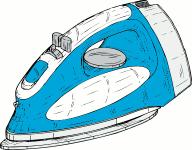 The term Modern Rubbish is bandied about quite freely sometimes, and in this context refers to modern engineering design.
The term Modern Rubbish is bandied about quite freely sometimes, and in this context refers to modern engineering design.
In truth, modern designs are usually very good, and avoid the excessive over-engineering that took place in the past, meaning items were heavy, wasteful, inefficient, and not necessarily the better for it. Modern designers usually have to minimise all waste in an item, and engineer in both strength AND weakness in appropriate places – take survival cells and crash zones on modern cars for example. However, I think many of them are losing out, and are over dependent on computer analysis and simulation, without the hands-on experience of materials that the old engineers had. Witness the ‘surprising’ rapid failure of a number of bridges due to the loss of a single stressed component in recent years. This shouldn’t have happened if the designs were truly simulated with the required accuracy, and had sufficient safety factors built in. It’s been more luck than anything else that no-one seems to have yet been killed by these modern, supposedly optimised designs.
This struck me the other day as I went to finish a task that I’ve been working on for the past couple of weeks. This involved using a clothes iron to both dry and iron flat a number of large plans and maps which had suffered from being rolled up for years in a damp/wet store. An hour or two a day has both dried and restored them to reasonable flatness, and the last few were to be completed yesterday. The exercise has already worn the non-stick coating on the sole plate down to bare metal, and after say 20 hours, the iron stopped heating yesterday, with only three sheets to finish off.
Not much good for a supposedly quality item from market leader Tefal, I decided that a £5 Tesco item would be replacing it – couldn’t be any less short lived, could it?
While waiting for the next trip to the shops to come around, I decided to have a look at the dead Tefal – why had it stopped mid-session?
Getting into it was the first problem – modern security fixings instead of honest nuts, bolts and screws – good job we have a full set o f security bits. Next, having removed the ‘screws’, nothing would move. After breaking one knife blade, I found the seams, and brute force eventually convinced the moulded-in clips to release the first cover. This revealed some more ‘screws’ (and one hidden down a hole) which allowed the previously immovable parts to separate.
Now I was puzzled, the fuse was ok, and a quick test showed the element was ok as well. The wiring checked out, yet the thing didn’t heat. There were only two possibilities – the thermostat (temperature control), and the overheat protection device. The thermostat clicked away quite happily, and the overheat hadn’t been tripped. Time to follow each connection until something electrically dead was found.
Well, after a mere 20 or so hours of use, I found that the contacts on the thermostat were burnt out – not much of an advert for the quality of supposed quality market leader Tefal.
Resurfaced contacts saw the iron re-assembled and working a few minutes later, but I wonder how long it will last, and when it will have to come apart for the contacts to be seen to again?
It all depends. I may just have been unlucky, and a bit of dirt got between the contacts and carbonised as they arced, so it won’t recur for some time. Alternatively, some whizz-kid in Tefal’s design department buried his or herself into the datasheets, worked out how often the contacts would switch over the life of the product, determined it was not something anyone would keep for very long, and selected a cheap set of contacts that would last the life they predicted, and to hell with anyone that might not consider the thing to be ‘disposable’ after the warranty has expired.
Modern Rubbish?
I think more a case of Modern Rubbish Inexperienced Designers (building down to a price).
 The term Modern Rubbish is bandied about quite freely sometimes, and in this context refers to modern engineering design.
The term Modern Rubbish is bandied about quite freely sometimes, and in this context refers to modern engineering design.